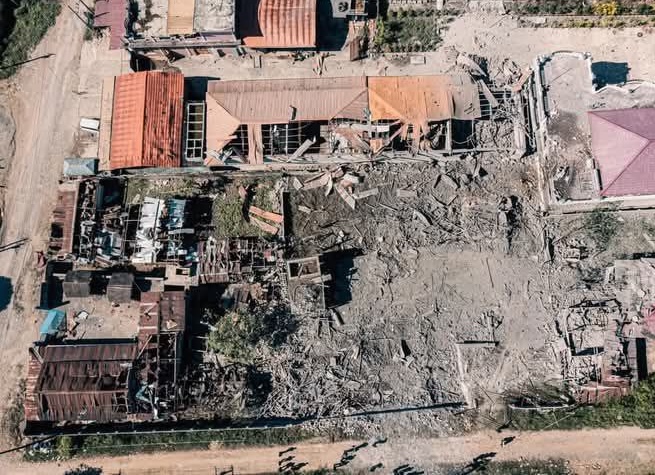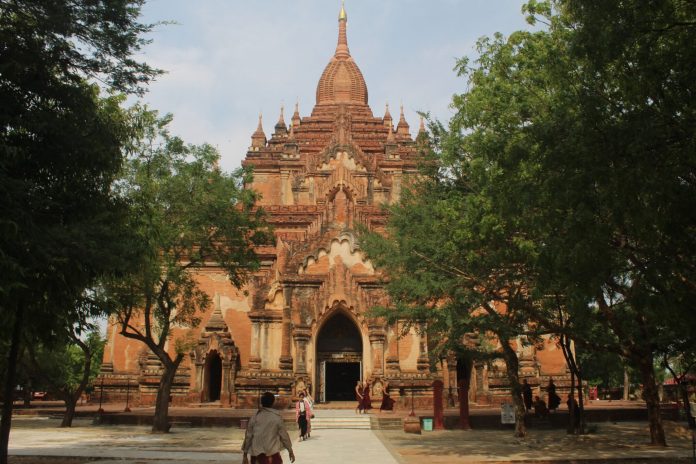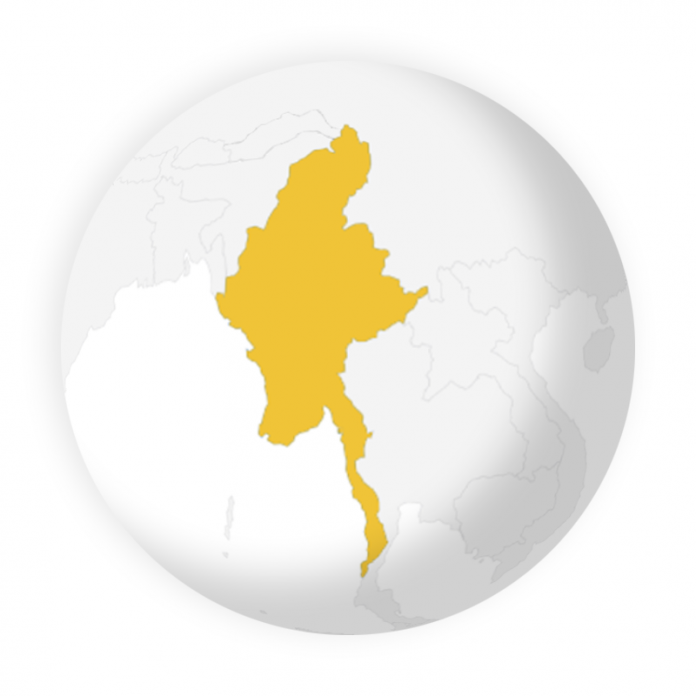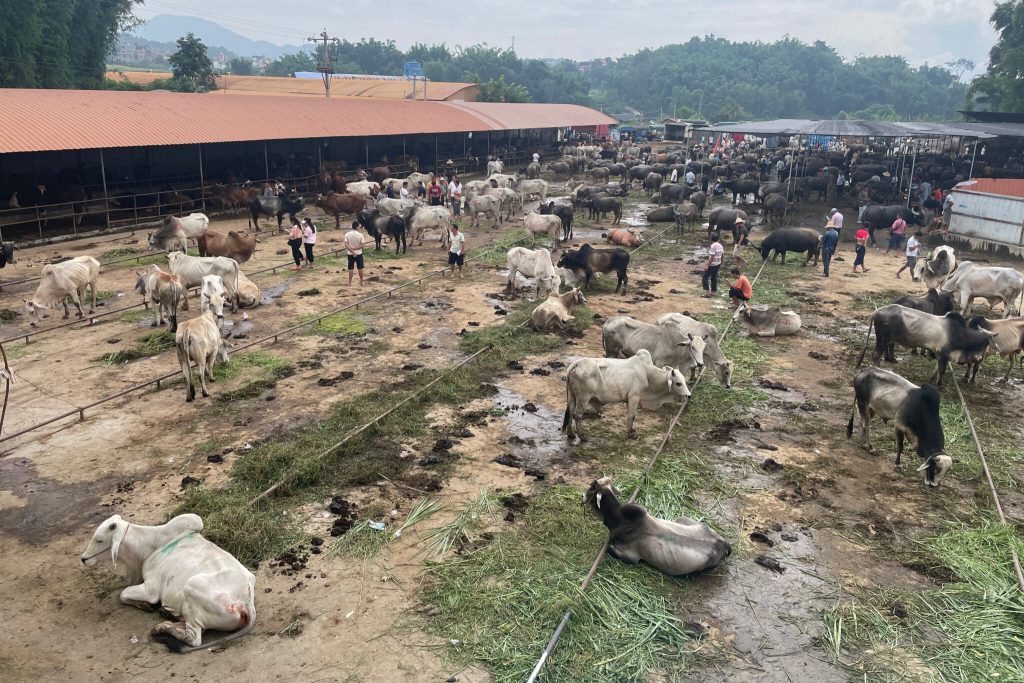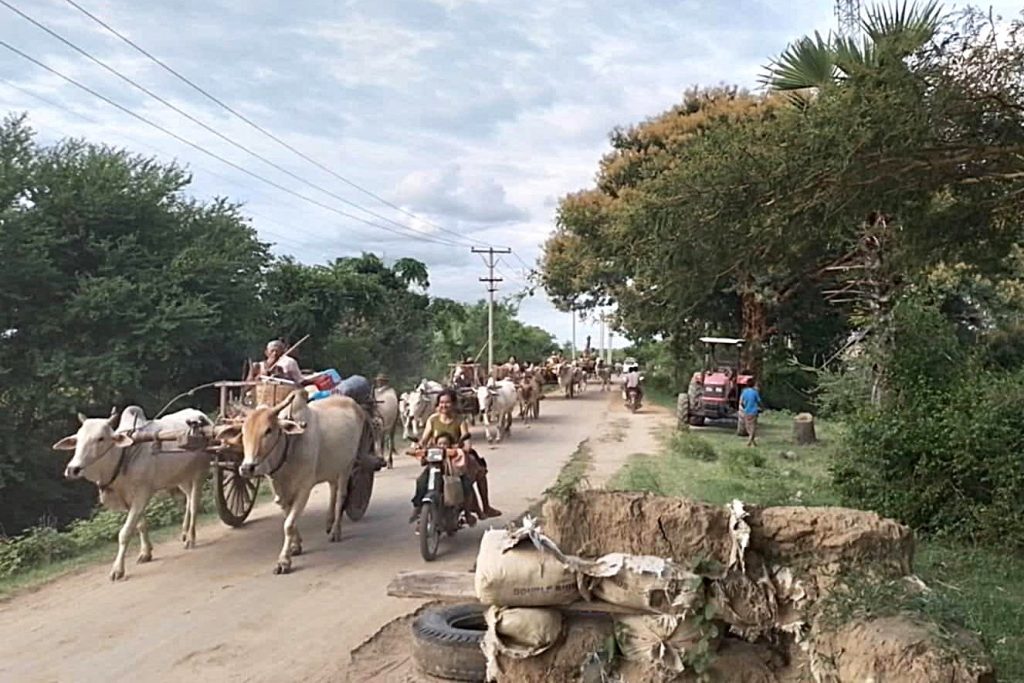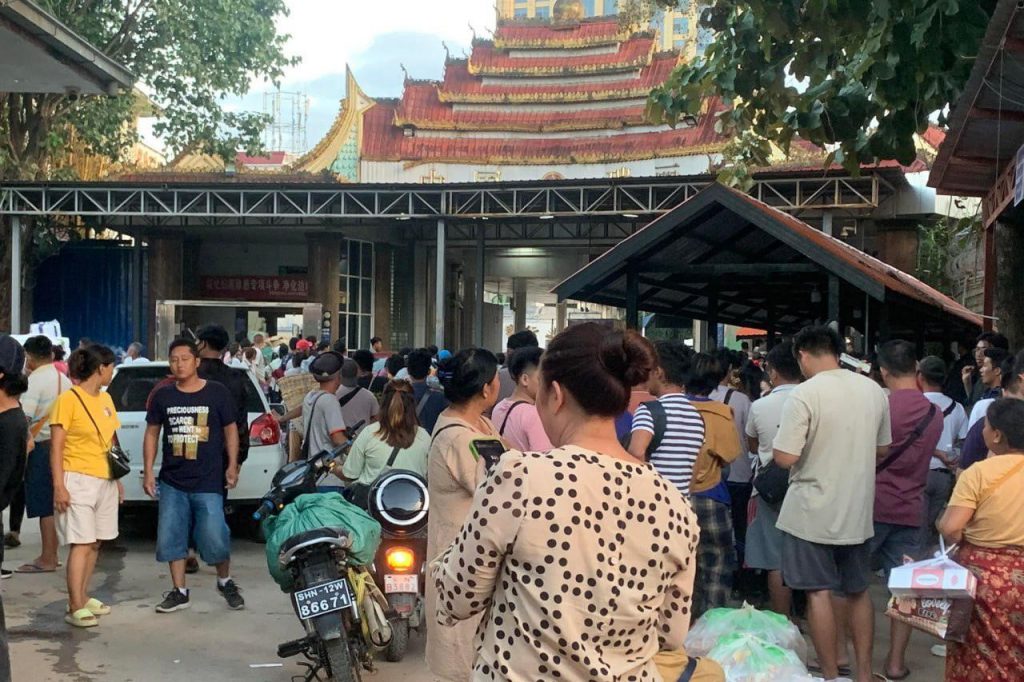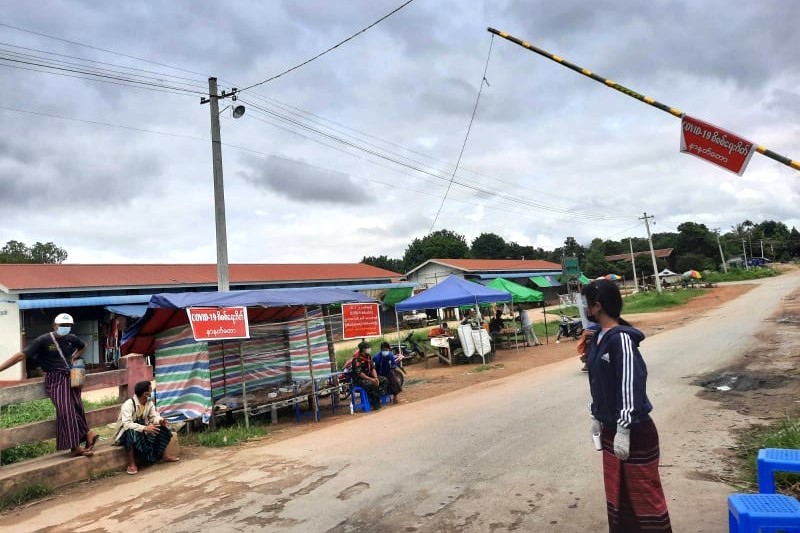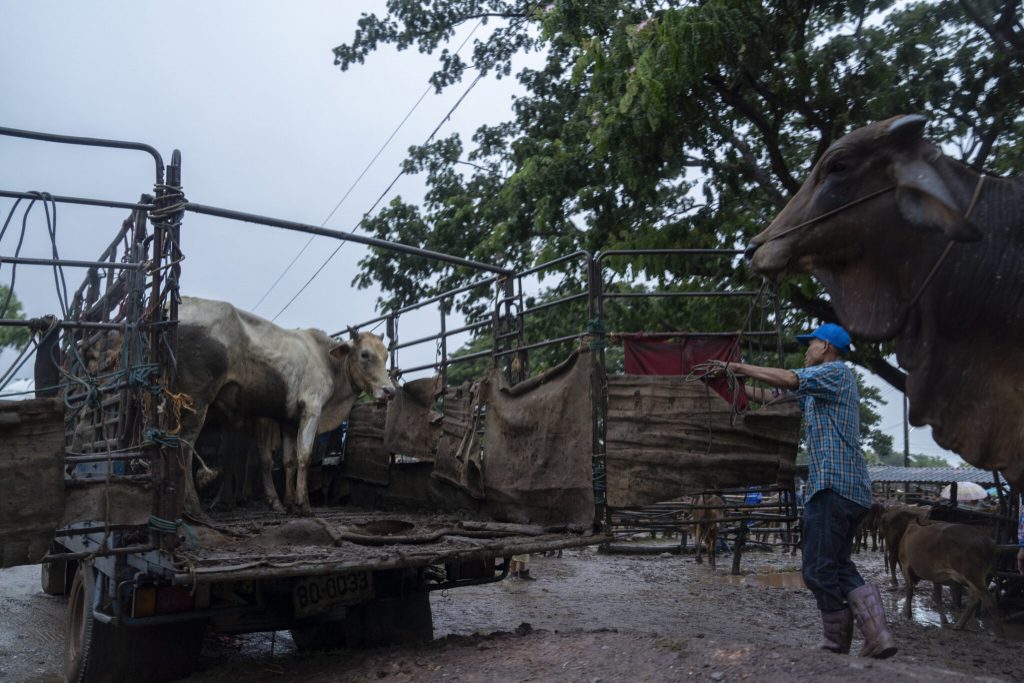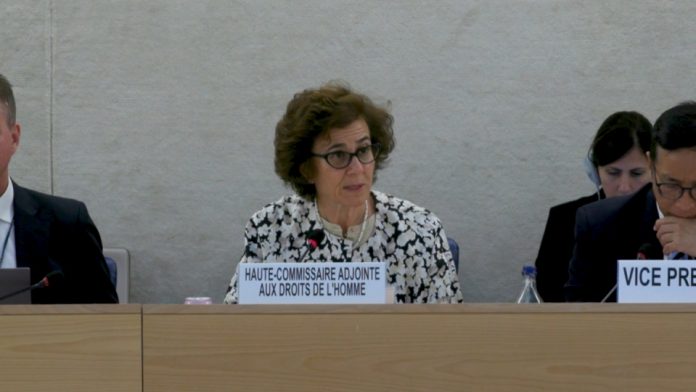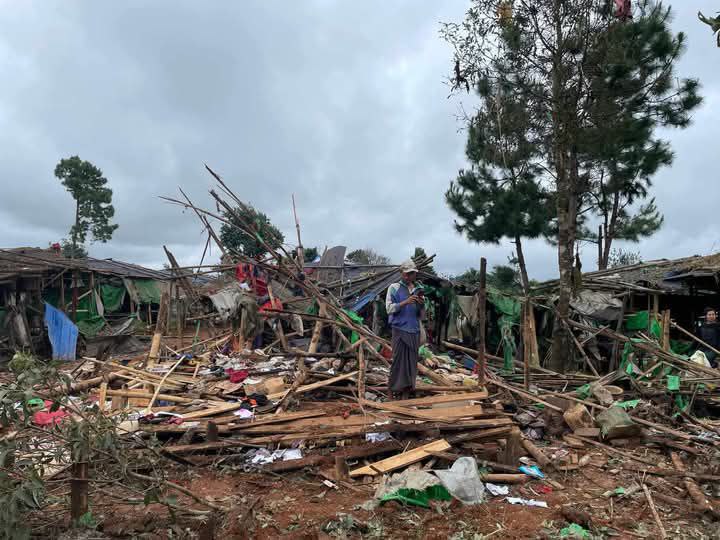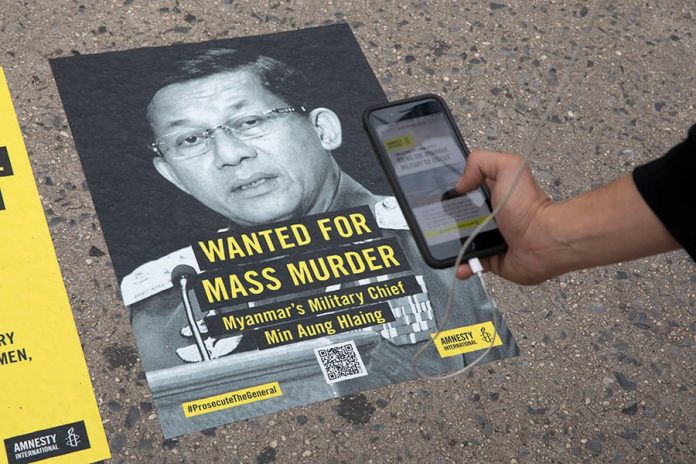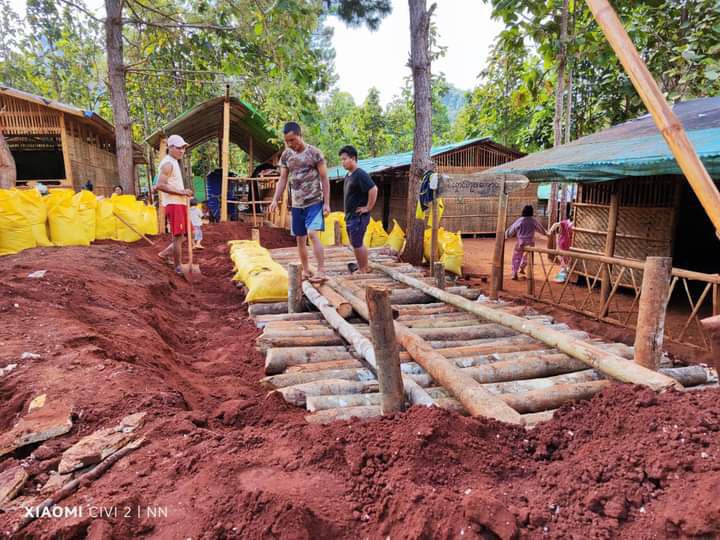Unilateral ceasefire declared by Brotherhood Alliance member
The Myanmar National Democratic Alliance Army (MNDAA), a member of the Brotherhood Alliance along with the Ta’ang National Liberation Army (TNLA) and the Arakan Army (AA), declared a unilateral ceasefire with the regime in Naypyidaw on Tuesday. MNDAA leader Peng Daxun is currently in China for medical attention even though media reported that he’d been placed under house arrest by the Chinese authorities.
“The MNDAA will not secede from the nation to establish a new state but is demanding an autonomous region. We will consistently maintain and protect national sovereignty and territory,” stated the MNDAA, which has taken control over the Kokang Self-Administered Zone in northern Shan State since the Brotherhood Alliance launched Operation 1027 on Oct. 27, 2023.
It also controls Lashio, which was seized by the MNDAA after the fall of the Northeastern Regional Military Command (RMC) headquarters, on Aug. 3. The MNDAA stated in September that it would not cooperate with the civilian-led National Unity Government (NUG) in political or military affairs. On Nov. 25, the TNLA called for talks with the regime to end hostilities but the military has continued to carry out airstrikes against areas under its control.
Shin Daewe named BBC 100 Women 2024
Documentary filmmaker Shin Daewe was listed by the BBC as one its 100 Women in 2024, highlighting her work under its culture and education category for women globally. The 51-year-old filmmaker was sentenced to life imprisonment under the Counter-Terrorism Act on Jan. 11 after being arrested in Yangon with a drone in her luggage on Oct. 15, 2023.
“Her being in the 100 women list not only appreciates her bravery but also gives hope that the forces for justice and humanity still prevail for Myanmar. I am very proud of her. It is very touching to imagine her smile behind bars with this news. She is a very strong woman and she will continue to be stronger. We are all counting down the days until her freedom,” said Lay Thida, a close friend of Shin Daewe and also a documentary filmmaker.
Shin Daewe worked as a video journalist at DVB from 2005-2010 and is known for documenting the 2007 Saffron Revolution. She has won local and international awards for her films, and was named a recipient of the International Women’s Media Foundation (IWMF) 35th annual Courage in Journalism Awards in June.
Data for Myanmar documents arrests of military critics
The research group Data for Myanmar documented that 149 people were arrested in 65 townships across Burma for social media posts critical of the military from August to October despite the number arrested this year decreasing from the previous two years. It added that more than 1,800 netizens have been arrested for criticizing the military online since the 2021 coup.
“Celebrities, artists and journalists were among those arrested. [Regime] media, as well as pro-military social media platforms, supported those arrests. We suggest to everyone not to share posts [to social media] that may cause religious conflict or spread hate speech. People should have some security and safety measures while using social media,” stated Data for Myanmar.
It added that the regime has carried out arrests in 223 of the 330 townships across Burma since February 2022. Bago, Yangon and Mandalay regions had the highest numbers of arrests of netizens sharing posts to social media platforms such as Facebook, TikTok, Telegram and Viber. Data for Myanmar noted that the regime, which had previously only targeted Facebook users after the 2021 coup, has since increased its monitoring of TikTok.
News by Region
KACHIN—Sources close to the Kachin Independence Army (KIA) told DVB that it has seized control of military camps located along the Bhamo-Mansi road. A Momauk Township resident reported that the KIA attacked the Light Infantry Battalion (LIB) 319 and 601 in Bhamo and Mansi townships, located 121-127 miles (194-204 km) south of the Kachin State capital Myitkyina, on Wednesday.
“We have been hearing the sound of gunfire since this morning. One of my relatives from Bhamo called me to say fighting is occuring around the town,” a Momauk resident told DVB on the condition of anonymity. An unknown number of Bhamo residents have fled their homes due to the fighting and in anticipation of retaliatory airstrikes.
MANDALAY—Two students were killed and another was injured by an airstrike that destroyed a building housing a Korean language center in Nabemyit village of Natogyi Township on Monday. Ngatogyi is 63 miles (101 km) southwest of the city of Mandalay.
“There was no fighting around the area. The number of casualties and deaths would have increased if the airstrikes had happened earlier in the day,” a Natogyi People’s Defense Force (PDF) spokesperson told DVB.
SAGAING—The Political Prisoners Network Myanmar (PPNM) claimed that prisoners who had paid 300,000 kyat ($65 USD) to the Shwebo Prison authorities were allowed to meet with visitors. The authorities have banned visitors since June due to “security reasons.”
“We confirmed with prison staff that the authorities don’t feed the prisoners well and make profits over food expenses,” a PPNM spokesperson told DVB. He claimed that at least 20 political prisoners have died in Burma due to inadequate medical care so far this year.
SHAN—Residents of Tangyan Township have reported that 18 Chinese citizens and 27 Burma nationals suspected of working at a cyber scam center were arrested on Monday. Tangyan is located 83 miles (134 km) southeast of Lashio in northern Shan State. The United Wa State Army (UWSA) deployed its troops to Tangyan on July 11.
“We heard they had moved [to Tangyan] from Laukkai. They are now detained,” a source close to the UWSA told DVB. Over 130 mobile phones, 26 computers, a Starlink satellite internet terminal, weapons and an unlicensed vehicle were seized. The UWSA handed over 762 Chinese citizens suspected of cyber scam operations in Tangyan to Chinese authorities last month.
(Exchange rate: $1 USD = 4,440 kyat)


